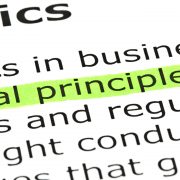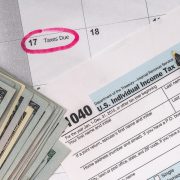With tax season upon us, this is typically the busiest time of year for the Internal Revenue Service’s (IRS) customer service representatives. Like most government agencies, the IRS does not have a great reputation for customer satisfaction. Of course, referring to the American people as, “customers” might be a bit of a stretch since we don’t necessarily have a choice in the matter. Even so, Americans will spend the next few weeks impatiently waiting as we try to get through to the next available representative.
According to an article in the Washington Free Beacon, the IRS has only answered 15.6 percent of the incoming customer service calls in 2016. Most of us expect nothing less from a bureaucratic branch of the federal government, still, those numbers are not very reassuring. In fact, by March of 2016, a month before the tax deadline, the IRS had only answered 6.3 million calls out of the 40.5 million it received. During the 2015 tax season, 83.2 million calls attempted to reach the IRS, but only 8.3 million were ever answered. Though this year currently has a 5.6 percent lead over the 2015 average, there is substantial room for improvement.
On a positive note, average wait times have gone down slightly, but it is still a huge burden for those who already have restrictive schedules. Seeing an opportunity to cash in on government incompetence, a new startup is changing the way we communicate with the IRS.
EnQ has decided to use robots to assist customers attempting to reach the IRS. For a small fee, EnQ will have a robot wait on hold for the IRS in your stead, leaving you free to get back to your regular life. The fees are dependent on how much time the robots are able to save for each customer. Typically though, the fees range from $1 to $7, well worth the freedom of not being glued to your phone.
After taking to the internet to rant about being kept on hold by the IRS for 85 minutes, Washington Post columnist, Gene Weingarten was contacted by the creator of EnQ, Andre Valiente.
In his retelling of the conversation, Weingarten explained his reluctance to support Valiente’s efforts. “Okay, wait a minute. Every time you do this, it makes the wait time longer for everyone else already on hold. People like me, who are not paying you extortion. You are jumping someone else ahead of me,” Weingarten told Valiente. After a string of skeptical comments Weingarten described as his “inner Bernie Sanders” coming out, Viliente went on to defend his company.
“All innovation is disruptive, and there will always be some people unhappy initially. But what I do is leverage technology to bring efficiency to an inefficient system. It’s the American dream to reward that!”
For those of us sick of waiting on hold to speak to an IRS representative ever year, this is a game changer. Though it might not fully abolish the bitter feelings tax season arouses within us all, this is definitely an example of the free market making bureaucracy more tolerable.













